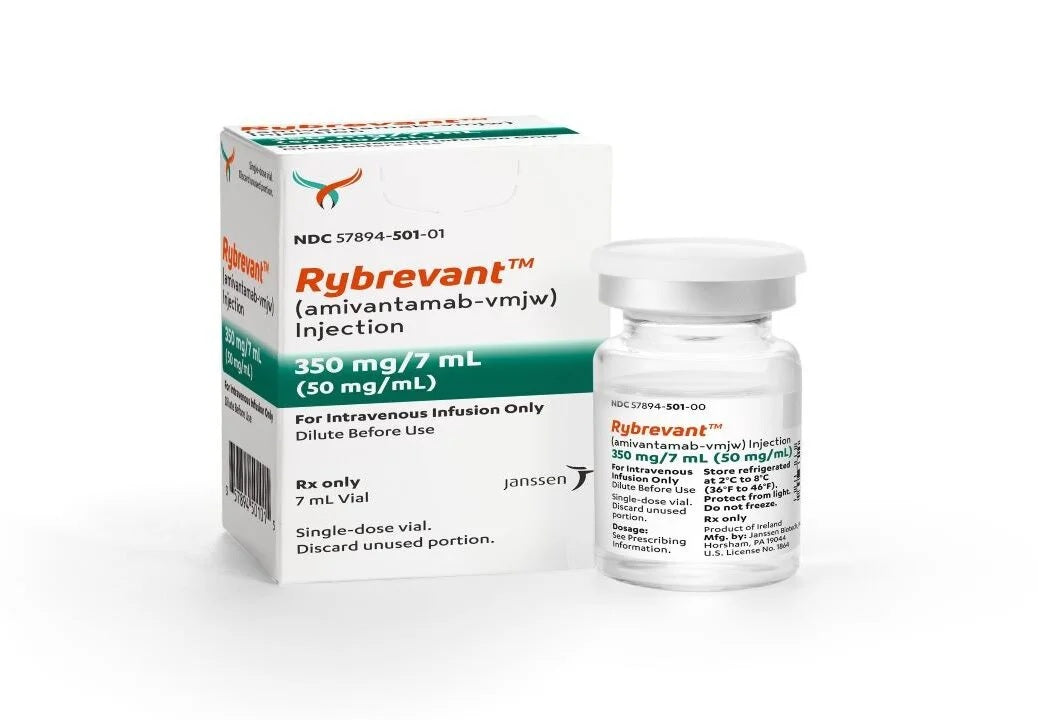Rybrevant (Amivantamab) Vial
Branded
Rybrevant
Rybrevant Vial is a prescription medicine used to treat adults with non-small cell lung cancer (NSCLC) that : has spread to other parts of the body (metastatic) or cannot be removed by surgery, and
has a certain abnormal epidermal growth factor receptor “EGFR” gene(s) and
whose disease has worsened while on or after chemotherapy that contains platinum.
Your healthcare provider will perform a test to make sure that RYBREVANT VIAL® is right for you.
It is not known if Rybrevant Vial is safe and effective in children.
Rybrevant Vial is a bispecific EGF receptor-directed and MET receptor-directed antibody indicated for the treatment of adult patients with locally advanced or metastatic non-small cell lung cancer (NSCLC) with epidermal growth factor receptor (EGFR) exon 20 insertion mutations, as detected by an FDA.
Uses Of Rybrevant Vial Tablet
- To treat adults with non-small cell lung cancer
Benefits Of Rybrevant Vial Tablet
In Treat A Certain Moderate-To-Severe Skin Rash
Medicines are sometimes prescribed for purposes other than those listed in a Patient Information leaflet. You can ask your healthcare provider or pharmacist for information about Rybrevant Vial that is written for health professionals.
Side Effects Of Rybrevant Vial Tablet
Common Side Effects Of Rybrevant Vial
- Rash
- Decrease albumin
- Infusion-related reaction
- Increased glucose
- Increased alkaline phosphatase
- Paronychia
- Musculoskeletal pain
- Increased creatinine
- Increased ALT
- Dyspnea
- Nausea
How To Use Rybrevant Vial Tablet
Rybrevant Vial will be given to you by your healthcare provider by intravenous infusion into your vein.
Your healthcare provider will decide the time between doses as well as how many treatments you will receive.
Your healthcare provider will give you medicines before each dose of RYBREVANT VIAL® to help reduce the risk of infusion-related reactions.
If you miss any appointments, call your healthcare provider as soon as possible to reschedule your appointment.
How Rybrevant Vial Tablet Works
Monoclonal antibodies are created in a lab to attach to the targets found on specific types of cancer cells. The antibody “calls” the immune system to attack the cell it is attached to, resulting in the immune system killing the cell.
| Disclaimer :
The information provided on the website is intended to facilitate awareness about healthcare products and medical conditions generally but it is not a substitute for professional medical attention or advice. You should always speak with a qualified healthcare practitioner before taking any prescription or non-prescription drug. |

